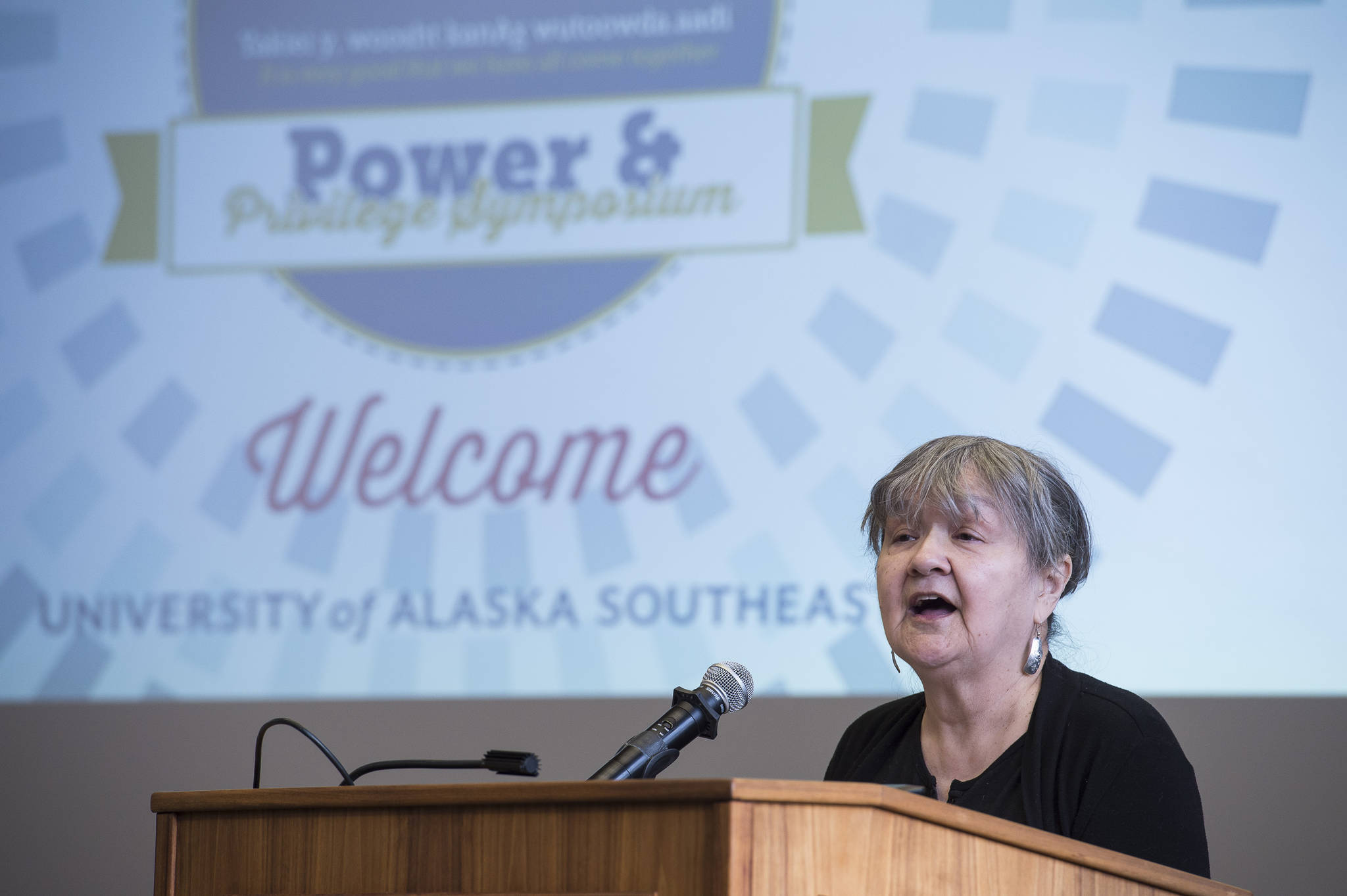When she heard about the first Power &Privilege Symposium at the University of Alaska Southeast in 2016, Dr. Barb Amarok was elated.
The University of Fairbanks adjunct faculty member thought the issues on hand at the event, such as equity throughout Alaska’s education system, were vitally important. When she had a chance to come speak at this year’s event, Amarok didn’t hesitate at all to make the 1,000-mile journey from Nome.
“I was so excited,” Amarok said. “I thought it was so exciting to have these conversations out in public and for people and organizations to be talking about how we can improve our educational system.”
The event, which kicked off Tuesday at UAS, included more than 20 presentations and discussions that addressed issues inside and outside of the world of education. Topics ranged from Confederate memorials to Islamophobia in America to violence against women to colonialism and various subjects in between.
Amarok, who said she has seen the same divisions in equality in schools since she was a student in the 1950s, said her presentation would be about how to address those long-standing divisions. She was one of three keynote speakers, the others being Alaska State Writer Laureate and author Ernestine Hayes and recent UAS graduate and University of California, Irvine Ph.D. student Forest Haven.
This year’s event was bigger than the inaugural event in 2016, Co-Chair of the Power &Privilege Symposium Planning Committee Nathan Bodenstadt said. In 2016, Bodenstadt said, 430 people showed up to the event after about 250 or 300 people registered beforehand. This year, Bodenstadt said, 350 people pre-registered for the event, so he hoped that meant there would be an increase in attendance this year.
Each hour of the day, from 10 a.m. to 5 p.m., there were so-called “breakout sessions” where four or five presentations would take place. Bodenstadt said that at least one presentation in each breakout session was led by a student.
The three keynote speakers broke up the day, with Hayes starting the day, Haven speaking just after lunch and Amarok wrapping the day up at 6 p.m.
The event was a year in planning, Bodenstadt said, but the presentations change and evolve as events unfold around the world. There was no stated theme this year, but Bodenstadt said they seem to have accidentally found one.
“I think it’s really powerful that basically everybody who’s gonna be in the library in front of a mic today is a woman,” Bodenstadt said. “All of our keynotes are indigenous women from Alaska and I think that’s really powerful. I think we ended with a theme, but we didn’t start that way.”
The first of those speakers was Hayes, whose talk was entitled “Empty Boxes.”
Hayes was expanding on a metaphor she had also used in her book “Tao of the Raven,” in which a man is living in a room that’s filled with boxes that are meant to confine him. The man accepts that these boxes are too difficult to move and continues to sleep in his small space.
One day, as Hayes told the story, the man ended up accidentally knocking one of the boxes over. He was surprised to see, as the box tumbled to the floor, that the box was empty. All of them were. What had confined the man, Hayes explained, were merely empty boxes. That, she said, is all that our personal restraints are — empty, meaningless boxes.
She listed off a number of so-called empty boxes in the world today, from white supremacy to revisionist history to European standards of beauty to colonialism. Her voice gained strength and volume as she reached the end of her speech.
“When we scatter those empty boxes, when we toss them across the floors of our existence, when we free ourselves from the hollow beliefs that divide our prison,” Hayes said, “we place ourselves in a long line of social justice warriors.”
• Contact reporter Alex McCarthy at 523-2271 or alex.mccarthy@juneauempire.com.

